The ideal egg quality diet is filled with nutrient-rich foods that promote healthy egg development and is specifically advised if you’re trying to conceive. Below we explore the principles of this diet, why it works, and the science behind these recommendations.
Doctors and fertility experts insist that having a good quality egg is one of the most important factors for successful conception and a healthy baby.
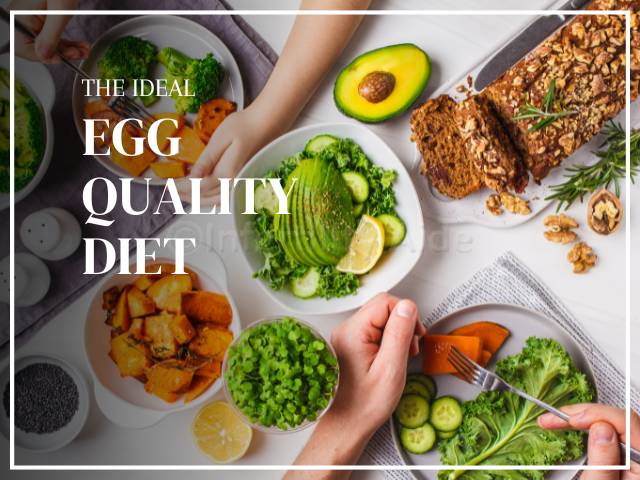
Now, your eggs naturally decline due to oxidative stress and DNA damage with growing age but according to one of our top IVF experts in Mexico, the genetic and structural health of a woman’s eggs can be improved.
The doctors, who regularly work with women of advanced ages, often advise them to follow a customized plan of diet, exercise, and supplements to enhance their chances of conception with IVF.
When to start the IVF diet for egg improvement?
The egg you will release in the next 3-4 months is being matured now. So, you must follow this diet for 12-15 weeks since this is the time it takes for an egg to mature fully within the ovarian follicle.
Why does egg quality decline with age?
Our bodies start to slow down as we approach our 30s and the three main contributors to the decline of reproductive function are:
- Oxidative stress: is a primary contributor to egg aging. It damages the DNA of your eggs, making it harder to conceive.
- Chronic inflammation: can disrupt your menstruation and ovulation cycles and cause potential egg quality issues.
- Insulin sensitivity: Insulin resistance, common in conditions like PCOS, can negatively affect egg quality, and may also result in anovulation.
What should my egg quality diet include?
Antioxidant-Rich Foods
- Why: Antioxidants combat oxidative stress, protecting egg cells and help reduce inflammation in the body.
- Foods to Include:
- Colorful vegetables and fruits (e.g., berries, spinach, kale, bell peppers).
- Nuts and seeds (e.g., walnuts, sunflower seeds).
- Spices like turmeric and cinnamon.
- Research: This study (1) published in Scientific Reports antioxidant rich foods helped lower the incidence of infertility in women by improving their egg quality.
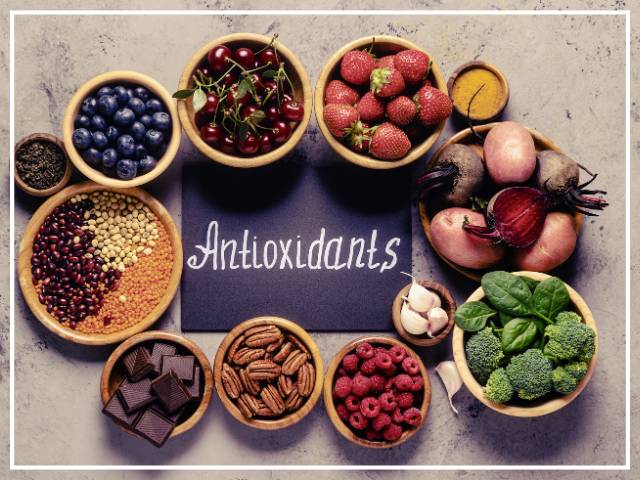
Healthy fats
Why: Fats are critical for hormone production and maintaining cell membranes but not all fats are equal. You want to include more monounsaturated and Omega 3 polyunsaturated fats, and reduce the consumption of saturated fats.
- Foods to Include:
- Avocado, olive oil, and fatty fish (e.g., salmon, sardines).
- Omega-3-rich sources like flaxseeds, walnuts, and chia seeds.
- Research: Omega-3 fatty acids have been linked to better ovarian function, lesser risk of anovulation and reduced inflammation. However, researchers in different studies (2) found anovulatory infertility to be higher with the consumption of a diet rich in trans-fats.
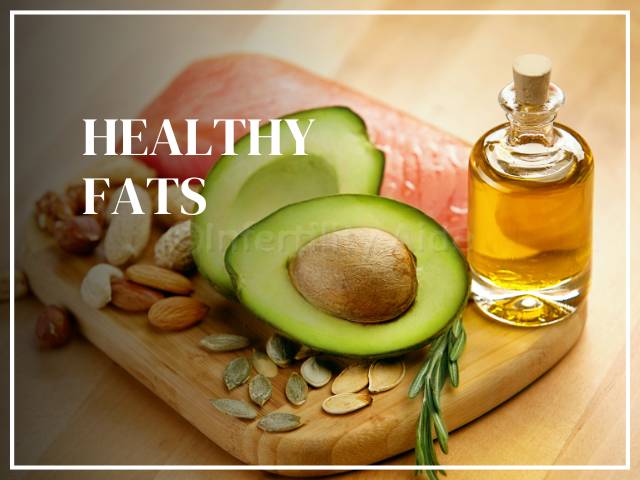
Lean protein
- Why: Amino acids are vital for cell growth and repair.
- Foods to Include:
- Organic lean meats, eggs, and dairy.
- Plant-based proteins like legumes, tofu, and quinoa.
- Research: Prioritize protein sources free from hormones and antibiotics. Researchers (3) found that consuming plant proteins was associated with lower risk of infertility as compared to animal proteins.
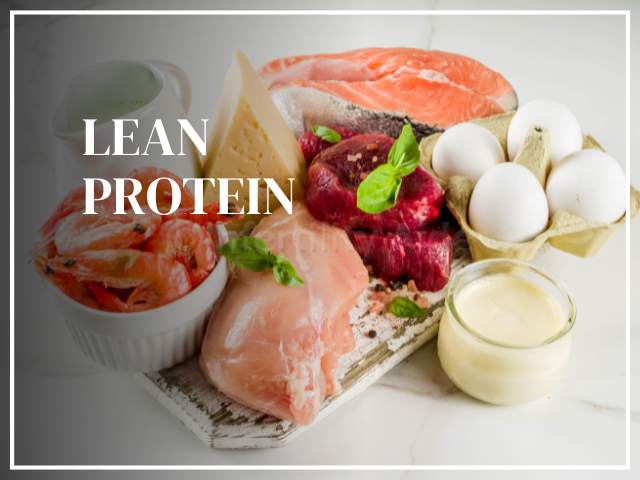
Low-Glycemic Carbohydrates
- Why: Maintaining stable blood sugar levels supports hormonal balance and reduces insulin resistance.
- Foods to Include:
- Whole grains (e.g., quinoa, farro, oats).
- Non-starchy vegetables like broccoli and asparagus.
- Moderate portions of fruits like apples and oranges.
- Research: A study of over 19,000 women (4) found that a low-glycemic diet is associated with a lower risk of anovulatory infertility, particularly in women with PCOS.
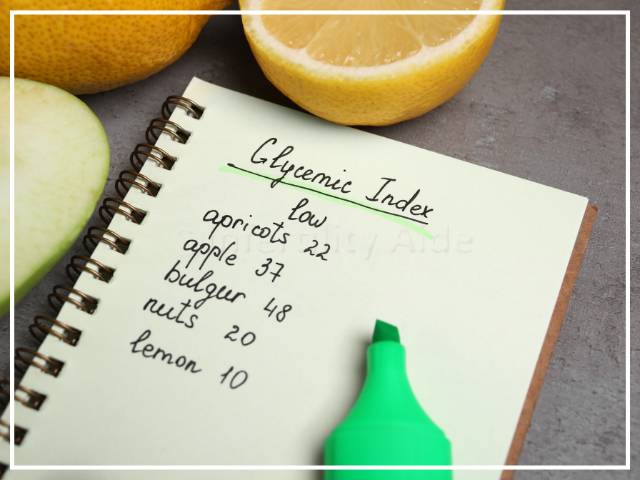
Micronutrients
- Why: Vitamins and minerals aid in egg maturation and DNA repair
- Key Nutrients and Sources:
- Folate: Leafy greens, beans, and fortified cereals.
- Vitamin D: Sunlight exposure, fortified milk, and fatty fish.
- Zinc: Pumpkin seeds, chickpeas, and oysters.
- CoQ10: This supplement is increasingly recommended for improving mitochondrial function in eggs.
- Research: CoQ10 administration has become popular after being reported in several researches (5) that it enhances ovarian response to stimulation and helps improve oocyte and embryo quality.
Foods to avoid when trying to conceive
- Trans fats: Found in processed and fried foods, these fats disrupt hormone production.
- Refined Carbohydrates: Foods that cause insulin spikes can harm egg health.
- Excessive Caffeine and Alcohol: Both are linked to reduced fertility outcomes.
Scientific Evidence Supporting Diet’s Role in Fertility
Numerous studies have reported that women adhering to a Mediterranean-style diet—rich in healthy fats, plant proteins, and antioxidants—were found to have higher clinical pregnancy rates in IVF.
Conclusion: get a personalized diet plan before IVF
The ideal egg quality diet is not a one-size-fits-all solution but a framework. Consult a fertility specialist or nutritionist to customize the plan based on your individual health needs. Remember, the sooner you adopt these changes, the better your chances of improving egg quality and achieving a successful pregnancy.
If you’re planning for IVF, it’s best to adopt the ideal egg quality diet for atleast 3-4 months before your treatment. Find the top doctors for affordable IVF and get a qualified doctor’s opnion on your diet and fertility health.
References
- Shao, Y., Ma, L., Zhou, J. et al. Impact of dietary antioxidants on female infertility risk: evidence from NHANES. Sci Rep 14, 22623 (2024). https://doi.org/10.1038/s41598-024-72434-8
- Wise, L. A., Wesselink, A. K., Tucker, K. L., Saklani, S., Mikkelsen, E. M., Cueto, H., Riis, A. H., Trolle, E., McKinnon, C. J., Hahn, K. A., Rothman, K. J., Sørensen, H. T., & Hatch, E. E. (2018). Dietary Fat Intake and Fecundability in 2 Preconception Cohort Studies. American journal of epidemiology, 187(1), 60–74. https://doi.org/10.1093/aje/kwx204
- Chavarro, J. E., Rich-Edwards, J. W., Rosner, B. A., & Willett, W. C. (2008). Protein intake and ovulatory infertility. American journal of obstetrics and gynecology, 198(2), 210.e1–210.e2107. https://doi.org/10.1016/j.ajog.2007.06.057
- Chavarro, J. E., Rich-Edwards, J. W., Rosner, B. A., & Willett, W. C. (2009). A prospective study of dietary carbohydrate quantity and quality in relation to risk of ovulatory infertility. European journal of clinical nutrition, 63(1), 78–86. https://doi.org/10.1038/sj.ejcn.1602904
- Xu, Y., Nisenblat, V., Lu, C., Li, R., Qiao, J., Zhen, X., & Wang, S. (2018). Pretreatment with coenzyme Q10 improves ovarian response and embryo quality in low-prognosis young women with decreased ovarian reserve: a randomized controlled trial. Reproductive biology and endocrinology : RB&E, 16(1), 29. https://doi.org/10.1186/s12958-018-0343-0
- Baroutis, D., Kalampokas, T., Katsianou, E., Psarris, A., Daskalakis, G., Panoulis, K., & Eleftheriades, M. (2024). The Role of the Mediterranean Diet in Assisted Reproduction: A Literature Review. Nutrients, 16(16), 2807. https://doi.org/10.3390/nu16162807
Reviewd by: Dr. Meenakshi, PhD